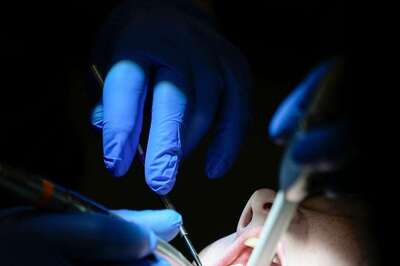
views
Exercising only has benefits for your health when you do it regularly. But making it a habit does not happen easily or overnight and takes effort, motivation and sacrifice. There are many things completely out of your control that can become a hurdle in your fitness journey ? the best example being the current pandemic. The COVID-19 lockdowns led many to hit pause as they couldn’t get to their gyms, play sports or go out for a run. And while you may have figured out how to resume your workouts safely by now, it?s good to know what exactly happens to your body when you suddenly quit exercising. Here are four major changes you?ll notice:
1. Increased oxygen demand
Exercising is good for your heart as it improves the efficiency with which your heart pumps blood. This blood carries oxygen, which spreads through the entire body more effectively. When you do not exercise for a few weeks, it becomes difficult for the heart to handle extra blood flow and also reduces the ability of the heart to use oxygen effectively which is medically called VO2 max.
VO2 max is the maximum ability of the heart, lungs and muscles to use oxygen effectively during exercise. It is also used to measure the aerobic capacity of a person.
In the book Endurance Training: Science and Practice, it has been stated that two to four weeks of detraining can significantly reduce VO2 max.
You can easily make this out on your own as after quitting, you may soon be short of breath from climbing a flight of stairs.
2. Loss of muscle mass
It might not become visible immediately but you will start to notice changes in your muscles (smaller and weaker muscles) after quitting high-intensity exercise or weight training. A study published in the Clinical Physiology and Functional Imaging revealed that a detraining period of 12 weeks can result in reduced muscle mass and lower muscular strength. However, it further stated that the person can regain all of it quickly after retraining as the muscles have memory. After quitting exercising, the person first loses power and endurance and then strength. You can notice this while picking up the heavy groceries; while you will be able to carry the weight, you may get tired more quickly than before.
3. Spiked blood sugar levels
When we eat food, our blood sugar levels spike up. In the people who exercise daily, this extra sugar gets absorbed by the muscles and other tissues to form energy. However, when people stop working out, these sugar levels remain elevated for longer after a meal. A study published in the journal Medicine & Science in Sports & Exercise showed even three days of inactivity in young healthy individuals can lead to glucose intolerance.
4. Weight gain
When you stop working out, the body fat increases as your calorie requirement decreases. Your metabolism slows down and the muscles lose their ability to burn as much fat. Also, since you’re not burning the same amount of calories as you used to while working out, the extra calories will be stored as fat in the body.
For more information, read our articles on Fitness.
Health articles on News18 are written by myUpchar.com, India’s first and biggest resource for verified medical information. At myUpchar, researchers and journalists work with doctors to bring you information on all things health.
Constituency-Wise Election Results LIVE: West Bengal | Tamil Nadu | Kerala | Assam | Puducherry
LIVE Blogs: West Bengal | Tamil Nadu | Kerala | Assam


















Comments
0 comment